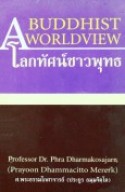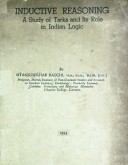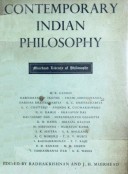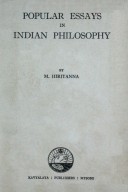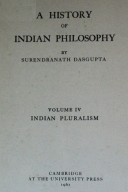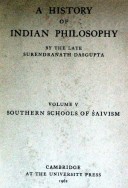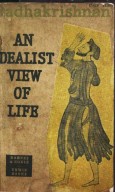FOREWORD
The papers included here were written on different occasions and for different audiences, hence they are somewhat diverse in the treatment of their topics. Nevertheless they represent a unity, the unity of my efforts to articulate a specifically Buddhist stance in the contemporary world. That is to say, a modem (or, if you prefer, postmodern) Buddhist worldview. The effort to do so is indeed inescapable for me: I am a Buddhist monk and educator in the modem world. Everything I do or say both expresses and helps to form a modem Buddhist worldview. It would be derelict to fail to attempt to articulate that worldview in coherent form. But besides my cultural-historical situation, it is clear to me that Buddhism can contribute to a new paradigm for the world that would alleviate the problems and contradictions of our unique times.
Modernism has many facets. It is a complex of technological, scientific, social, political and economic forces. Its effects range from the change in physical living arrangements which forces the re-structuring of the family to the global migration that have brought people of different cultures into close contact, and often into conflict. The changes are destabilizing in their rapidity and often dehumanizing in the technologization of work. This is not a new observation, and it is often remarked that spiritual development has not kept up with technological development. However, concrete proposals are rarely made. For this reason, the first paper, “Prominent Facets of Buddhism”, was delivered to the 19th General Conference of the World Fellowship of Buddhists held in Bangkok.
In the second paper, “Educating for Balance”, delivered to the World Council for Curriculum and Instruction, I propose an educational programme, based on Buddhist educational principles, that would re-integrate those aspects of human experience that science excludes, without at the same time excluding science. This is possible, because the Buddhadhamma, while going far beyond the limits of science, is nevertheless quite friendly to the best of the scientific spirit. In this paper, I also introduce the idea of a paradigm shift, a fundamental change in worldview, if the world is to flourish in the future.
The third paper, delivered at the Millennium World Peace Summit of Religious and Spirital Leaders at the United Nations, I show that the Buddha’s teachings on the priority of inner peace include also the practical advocacy of international peace: their can be no just war from a Buddhist perspective. Moreover, the Buddha showed, in actual international negotiation, that form a purely human point of view, the things we fight over are far inferior to human life itself.
The final paper was written specifically for Buddhists at the Second World Buddhist propagation Conference. I argue in this paper that Buddhist propagation means working for peace, harmony and prosperity on all levels, from the heart of the individual to local and national economies and to the stage of international relations. In short, to actively work for a new and all-inclusive paradigm or worldview with all the resources available to us.
It is my hope that this book will further the development of a new holistic paradigm, and with it the flourishing of all living things in a world at peace. I hope that those who read it without cynicism, will take from it new hope for a better world, and inspiration to work toward that world.
The production of any book is a community effort. I would like to express my sincere thanks and appreciation to MCU staff, especially Phra Wisutthiphattharathada (Prasit Brahmarangsi), Phra Sithawatchamethi (Chana Dhammadhajo) and Stephen Evans for their efforts in editing, translating some parts of the English text into Thai, and overall composition, layout and typesetting. Without them this book could not have been produced in its present form. Finally, I would like to give my sincere appreciation to Mr. S. and Mrs. T. Chainuvati for their kindly donation to make this publication possible.
Phra Dharmakosajam
Rector, Mahachulalongkomrajavidyalaya University
Bangkok, 7 MAY, 2006/2549
PREFACE
The International Buddhist Conference on the United Nations Day of Vesak is held at the Buddhamonthon Auditorium, Nakhon Pathom and the United Nations Conference Center, Bangkok from May 7th -10th, B.E. 2549/C.E. 2006. This is the most noble event for all Buddhists, not just in Thailand but also all over the world.
It is a matter of great privilege that, with the permission of the Government of the Kingdom of Thailand, Mahachulalongkornrajavidyalaya University (MCU) has the opportunity to organize again this important gathering of the international Buddhist leaders and scholars to commemorate the Day of Vesak on which falls the Buddha’s Birth, Enlightenment and Passing Away.
As a complementary to this conference, Mahachulalongkornrajavidyalaya University reprints “Buddhist Worldview” by Prof. Dr. Phra Dhammakosajam (Prayoon Mererk), Rector of Mahachulalongkomrajavidyalaya University.
May all be happy, peaceful and free from suffering through the power of the great wisdom and compassion of the Lord Buddha.
Documentary Section
Mahachulalongkomrajavidyalaya University
May 7, 2549/2006
CONTENTS
Foreword
Preface
Programme
Prominent Facts of Buddhism
Education for Balance: A Buddhist Perspective
A Buddhist View on Conflict Resolution
Buddhist Propagation for World Peace
About the Author
 Facebook
Facebook
 Google
Google
 Google+
Google+
